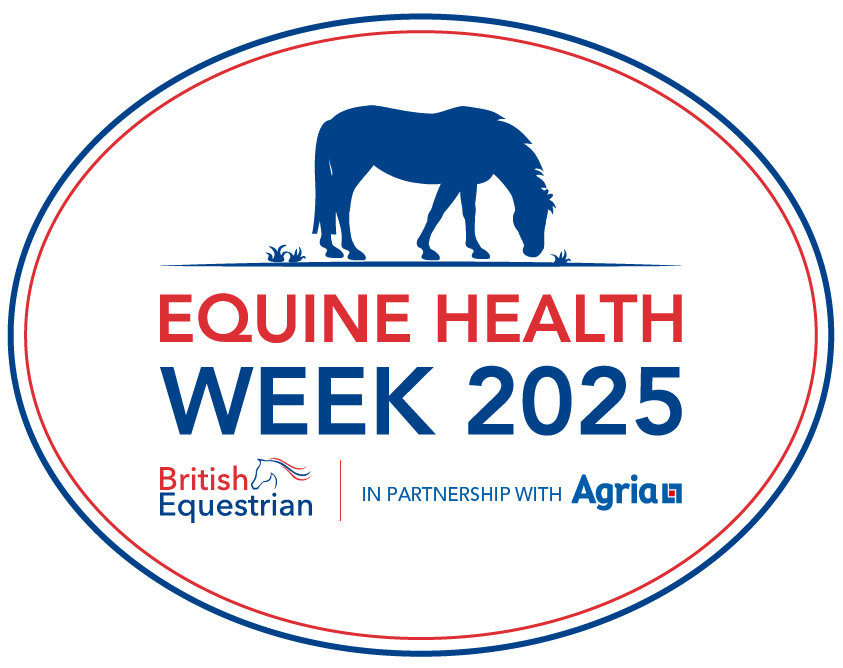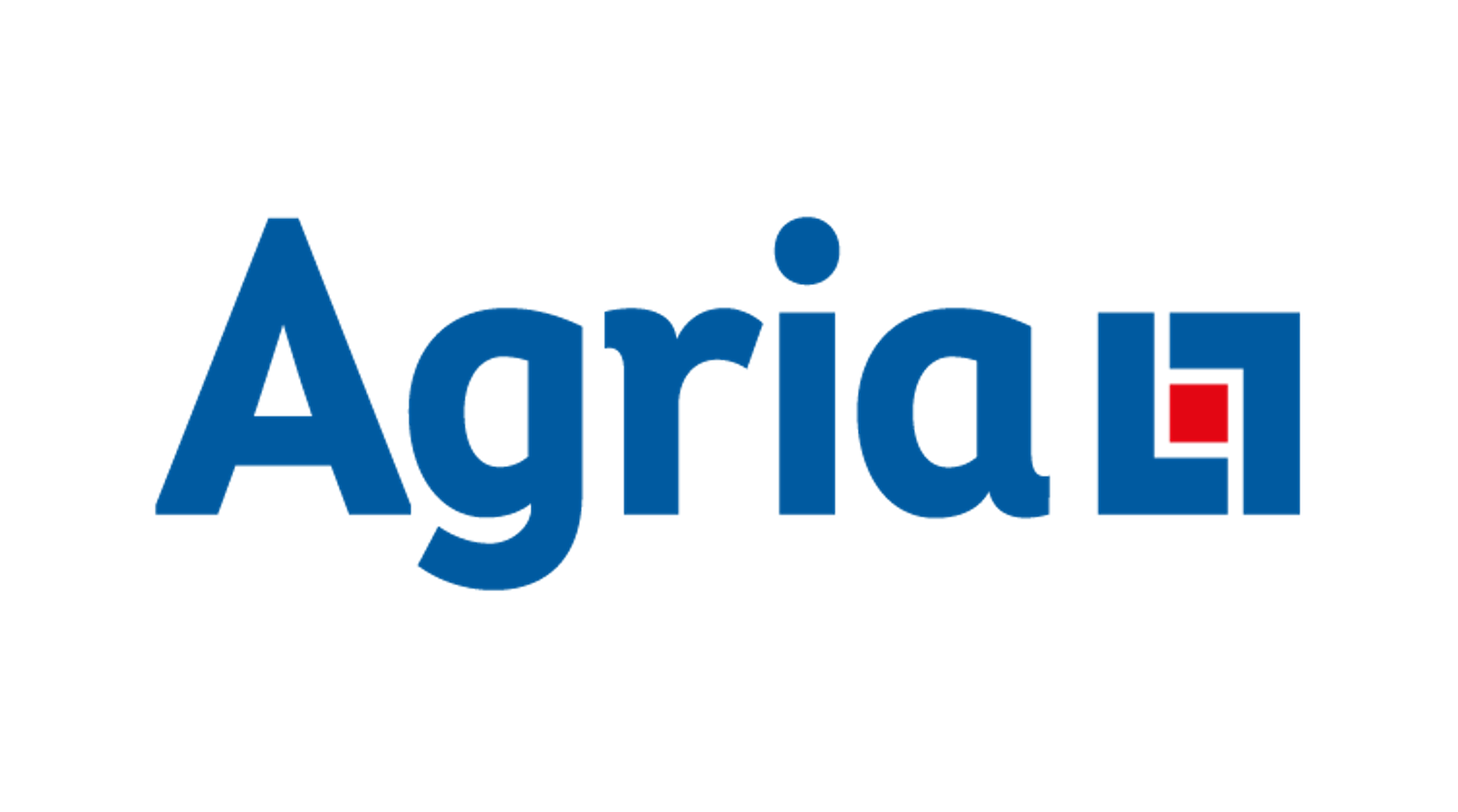Equine Health Week 2025
 Equine Health Week is back! The third iteration of our annual campaign, run in partnership with Agria, is focusing on the lifecycle of the horse and what you can do to promote mental and physical wellbeing at each of the key stages, from conception until the very end.
Equine Health Week is back! The third iteration of our annual campaign, run in partnership with Agria, is focusing on the lifecycle of the horse and what you can do to promote mental and physical wellbeing at each of the key stages, from conception until the very end.
The week-long campaign will feature a fascinating daily podcast series with leading experts from across the equestrian sector. Plus, there'll be a variety of educational content and resources on our Facebook and Instagram channels, so keep your eyes peeled. We'll also share all of the content on this webpage, so keep checking back to make sure you haven't missed a thing.
The week is aimed at everyone who interacts with equines – whether you ride occasionally at a centre, have your own horse or run a bustling yard, everyone has a part to play in the health, wellbeing and welfare of our equine partners.
Here's what we've got coming up...
| Day | Topic | Experts |
|---|---|---|
| Monday | Breeding and foals | Dr. Jan Birch and Edward Matson from the British Horse Foundation, and Rebecca Keating from Twemlows Stud Farm |
| Tuesday | Early days | Associate Professor Brad Hill from the University of Nottingham |
| Wednesday | Producing young horses | Dr. Russell MacKechnie-Guire from Centaur Biomechanics and eventing coach Nicola Wilson |
| Thursday | Holistic husbandry | Groom Steph Sharples from Hughes Dressage, World Horse Welfare, Kate Hore from NAF and Dr. Marga Mas from Dodson & Horrell |
| Friday | Success in the saddle | Evening coach Nicola Wilson and dressage athlete Gareth Hughes |
| Saturday | Older horses | Vet Nicola Housby Skeggs from The Horse Trust |
| Sunday | End of life | Vet Alistair Crozier from Parkside Veterinary Group, Dr. Amelia Cameron from University of Nottingham and the Welfare Team from The British Horse Society |
Day one: breeding and foals
For the first day of Equine Health Week 2025, we're starting at the very beginning – breeding, pregnancy and the first few months of a foal's life.
Podcast
In the first episode of the podcast series, Dr. Jan Birch and Edward Matson of the British Horse Foundation and vet Rebecca Keating from Twemlows Stud Farm join Rachel for an in-depth discussion on everything there is to think about if you're considering breeding your mare. Plus, they explore how to care for her during pregnancy, what the foaling process looks like and how you can give your new foal the best start in life.
Questions to ask yourself
With thanks to The British Horse Foundation for their help with this graphic.
Additional resources
The British Horse Foundation has collated a handy webpage that includes all of the resources mentioned in today's episode of the podcast.
If you enjoyed this episode of the podcast, check out the 'Better Beginnings' episode from Equine Health Week 2024, where Jane Nixon and Kezia Allen from The British Horse Foundation discuss the importance of the first few years of a young horse's life and how actions taken during this time can set him up for the future.
Day Two: The Early Years
Podcast
In the second episode of our series for Equine Health Week 2025, Associate Professor Brad Hill from The University of Nottingham's School of Veterianary Medicine joins Rachel to discuss how to get the weaning process right, how to provide the best environment for your young horse to grow up in and how equine learning theory will give him the best start to his education.
Questions to Ask yourself
Additional Resources
Watch Brad's talk on positive mental attitude from the British Horse Foundation's Better Beginnings conference, which took place last year.
If the discussion on equine learning theory has piqued your interest, World Horse Welfare will be hosting a webinar on the subject at 7pm on Wednesday 29 March, presented by equine behaviourists Trudi Dempsey and Justine Harrison. You can register for the event here.
Day three: Producing young horses
Day three of Equine Health Week 2025 is all about giving your young horse the best start to his ridden career.
Podcasts
In the first of two episodes, Dr. Russell Mackechnie-Guire of Centaur Biomechanics explains how you can tailor your training to hopefully set up your young horse for long-lasting soundness and success under saddle.
In today's second episode, the legendary Nicola Wilson shares her experiences, both as a rider and a coach, in producing young horses with a way that encourages a ‘happy athlete’ who enjoys his work.
Questions to ask yourself
Additional resources
At The British Horse Foundation's Better Beginnings conference last year, Yogi Breisner presented on holistic training of the young horse.
Day four: Holistic husbandry
Today, we explore the management strategies you can take to ensure that you're giving your horse the best possible life.
Podcasts
In the first of two episodes for today, groom and yard manager Steph Sharples shares how she cares for the horses at Hughes Dressage in a way that means they're able to perform at their best with Gareth between the white boards. She discusses the importance of having a routine, learning your horse's personality and why daily turnout is an essential for all of their horses.
Our horses' nutritional needs will change throughout his life. In this special episode for Equine Health Week 2025, Rachel is joined by NAF's Head Nutritionist Kate Hore and Dodson & Horrell's Veterinary and Nutrition Advisor Dr. Marga Mas for discussion on all things equine nutrition. Covering everything from different nutritional needs at different life stages to how to choose the most suitable feed and supplements for your individual horse – via nutrition-related health problems, the importance of choosing a BETA NOPS-accredited brand and just what your horse's poo can tell you about his wellbeing – this episode is a must-listen if you want to ensure that your horse is getting the best possible outcome from his diet.
Questions to ask yourself
With thanks to World Horse Welfare for their help with this graphic.
Additional resources
Roly Owers from World Horse Welfare explains how to build a bond with your horse in this video from Agria.
Kirsty Chabert explains how she uses enrichment to help keep her horses happy at stay-away shows in this video from Agria.
Both NAF and Dodson & Horrell provide fat or body condition score charts to help you ensure your horse is at a healthy weight.
Discover what your horse's droppings can tell you about his digestive health in this handy article from Kate Hore, Head Nutritionist at NAF.
If you have any queries about your horse's weight, both NAF and Dodson & Horrell have teams of nutritionists who can answer your questions and help ensure that your horse is on the best diet for his individual needs.
| NAF | Dodson & Horrell |
|---|---|
|
Freephone: 0800 373106 WhatsApp: 07976 448260 Email: info@naf-uk.com |
Feedline: 01270 782223 |
Find out more about the British Equestrian Trade Association's NOPS scheme and check if your feed company is accredited.
Take the FEI's free nutrition course via the FEI Campus.
Day five: Success in the saddle
Today for Equine Health Week 2025, we’re focusing on how you can build a partnership with your horse in the saddle and support him to perform at his best.
Podcast
Coach and former FEI Eventing European Champion Nicola Wilson returns to the podcast to share her top tips for a successful ridden partnership, including how to instill confidence in your horse, planning your competition season and the importance of appreciating him as an individual.
Questions to ask yourself
Additional resources
Kirsty Chabert explains what she looks for when choosing a horse in this video from Agria.
Gareth Hughes explains how to build a bond with a new horse in this video from Agria.
Day six: Older horses
Today, we’re turning our attention to older horses who might be at the point of taking life a little more slowly.
Podcast
In today's episode, Nicola Housby Skeggs, Veterinary Director at The Horse Trust, shares her experiences of caring for the charity’s 140 elderly residents and explains how to tailor your horse’s management as age catches up with him, so you can keep him happy and comfortable in his golden years.
Questions to ask yourself
Additional resources
World Horse Welfare have produced an article on some of the considerations when caring for an older horse.
The Blue Cross have a handy guide on their website on caring for an older horse and some of the common conditions he might suffer from.
In this video from Agria, Gareth Hughes explains how to go about retiring your horse and creating a routine that works for him. His Yard Manager, Steph Sharples, also explains how to care for an older, retired horse in this video.
Day seven: End of life
We’ve come to the final day of Equine Health Week and today’s topic is one that nobody involved with horses likes to think about, but one that many of will have to go through at some point – end of life. It’s a sad fact that very few horses will pass away naturally so, whether as a result of accident, injury, illness or old age, euthanasia is something that many owners will be faced with. Having an end of life or emergency care plan and knowing how you’d want that process to go can help to reduce delay and distress when the day finally comes.
Podcast
Vet Alistair Crozier from Parkside Veterinary Group and Dr. Amelia Cameron from the University of Nottingham's School of Veterinary Medicine give insight into the euthanasia process, plus share some of the factors to think about when creating an end of life plan for your horse.
Questions to think about
Additional resources
The British Horse Society have created an emergency care plan template (below), which you can complete and share with your yard manager and/or authorised representative, who can stand in for you if you can't be contaced in an emergency. You can find out more information about emergency care planning and decision-making on their website.
The British Horse Society website contains information about euthanasia and the options available to you.
Friends at the End is The British Horse Society's support scheme for horse owners and carers who are facing saying goodbye to their equine companion. They offer free, confidential support to horse owners, loaners, carers and sharers before, during and after the death of loss of a horse.
The Equine Equine of Life Service is a not-for-profit organisation that offers a euthanasia and/or collection service for horses, ponies and donkeys, utilising fully trained, professional and licenced collectors.
The Blue Cross offer a free, confidential pet bereavement service that's open to those who've lost horses. You can call, email or live chat with a trained volunteer.
There are a number of resources available on the World Horse Welfare website, including a downloadable leaflet on the facts of euthanasia and an emergency care plan template that you can complete.
